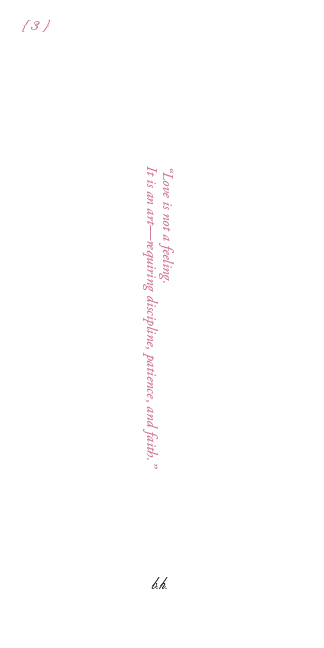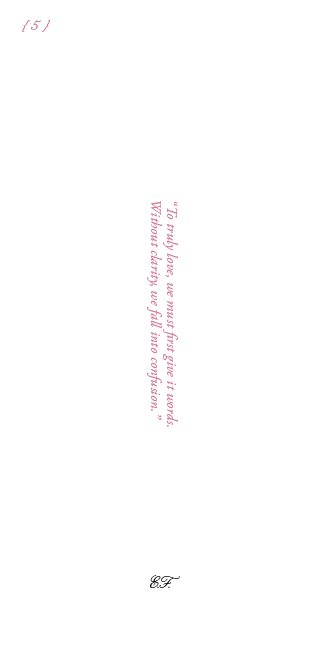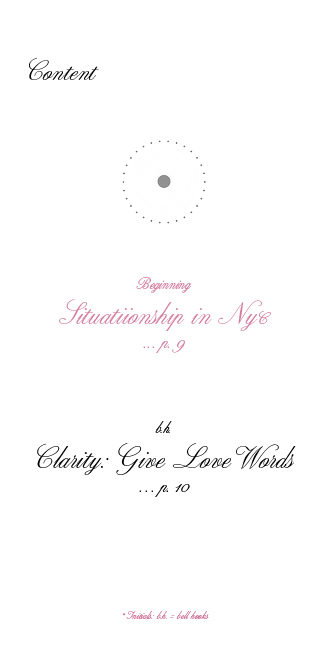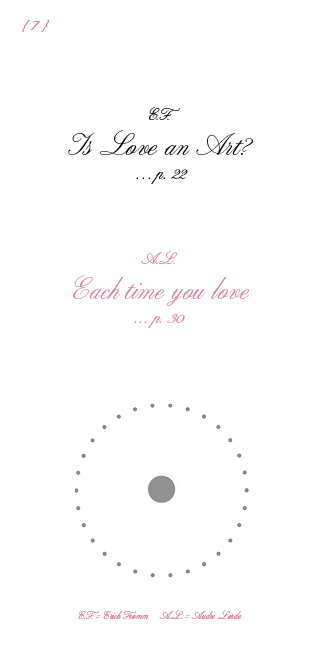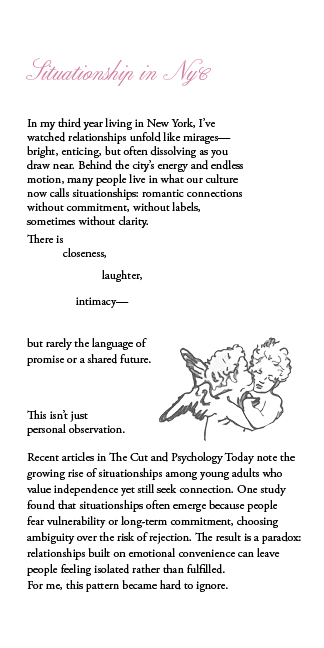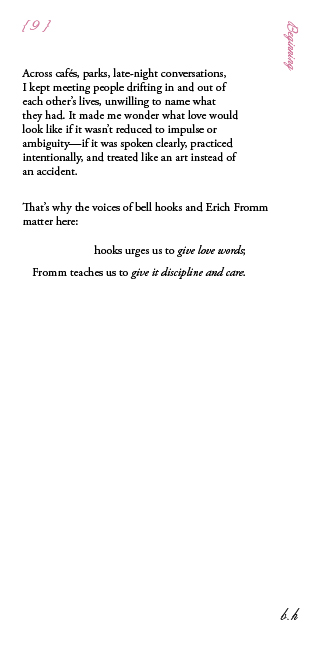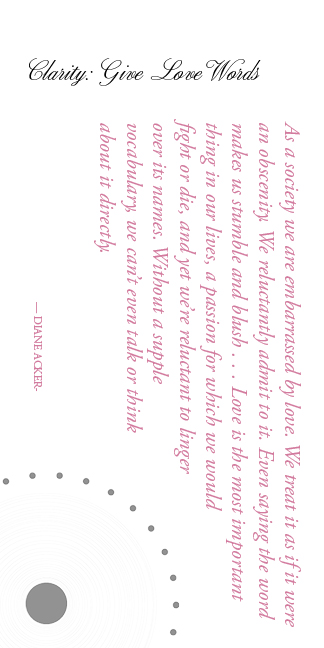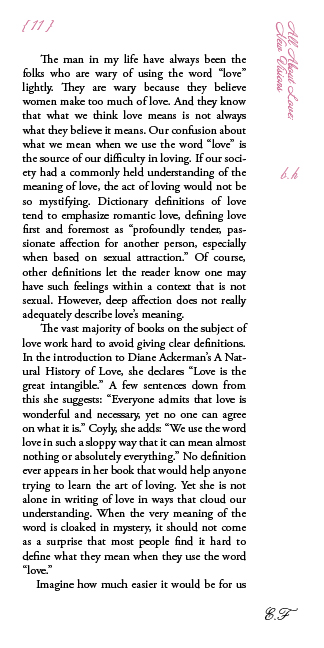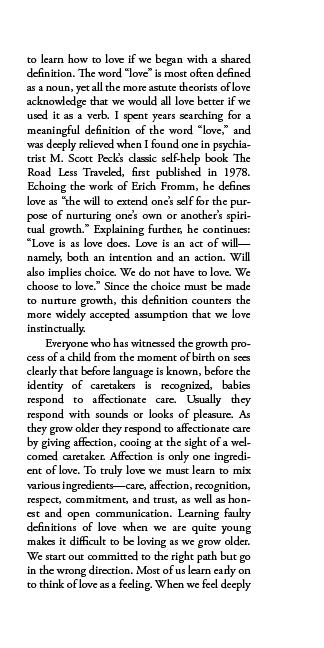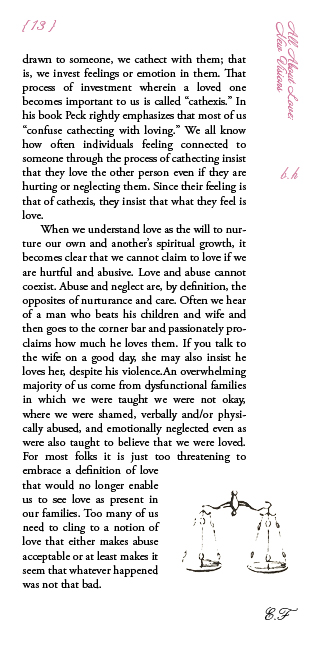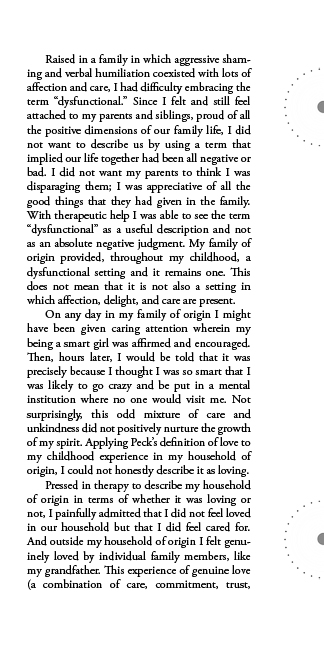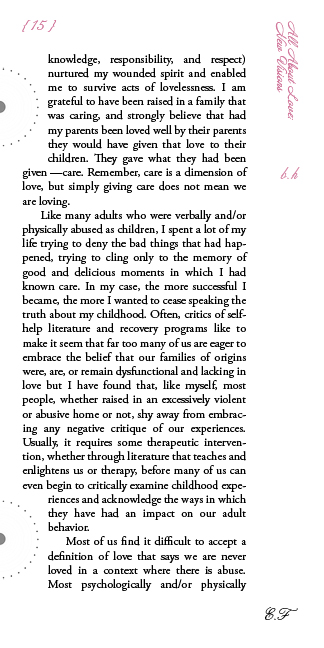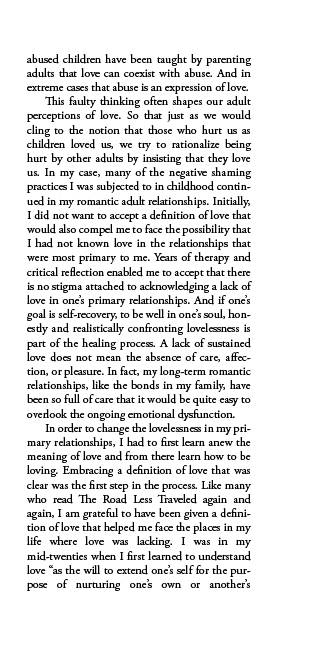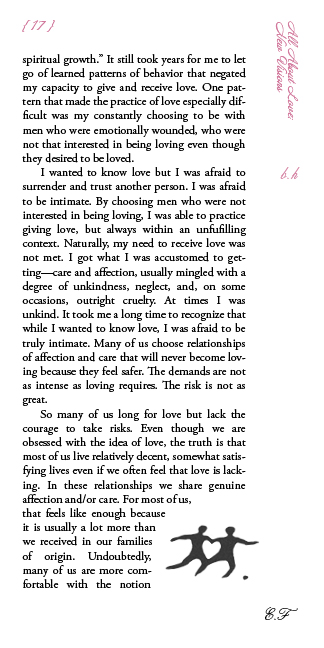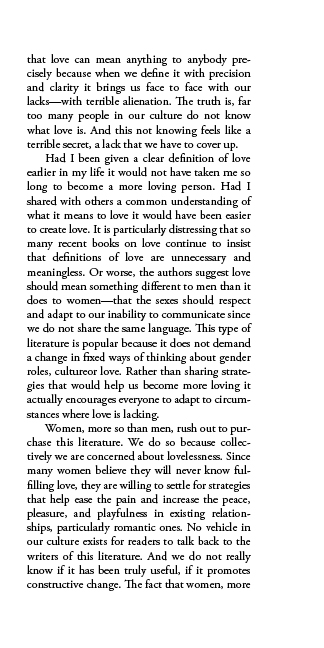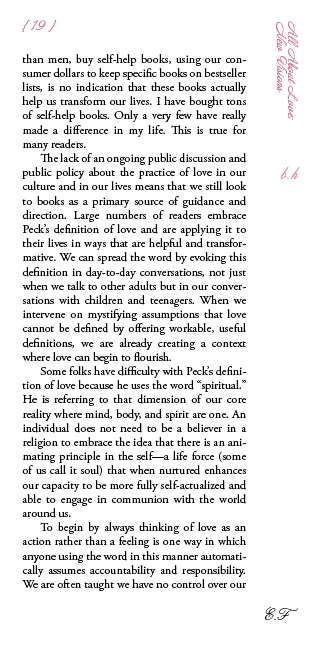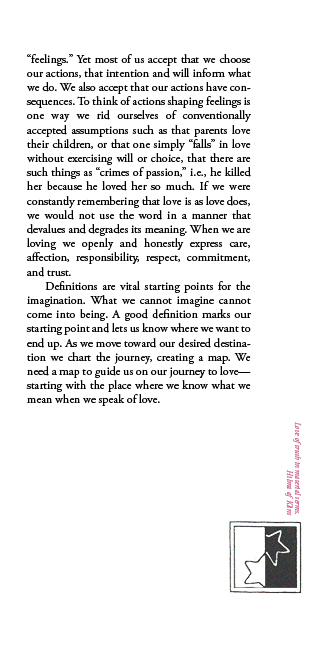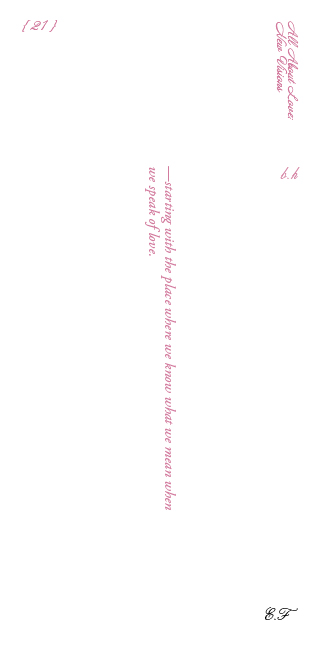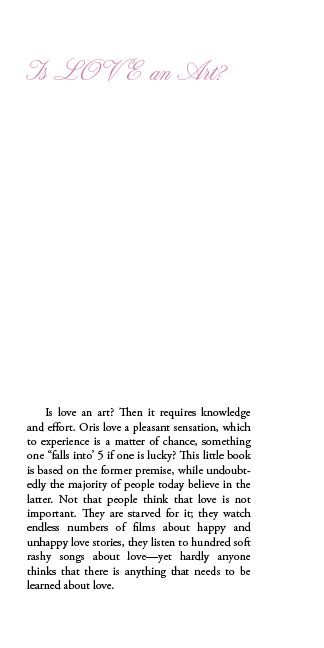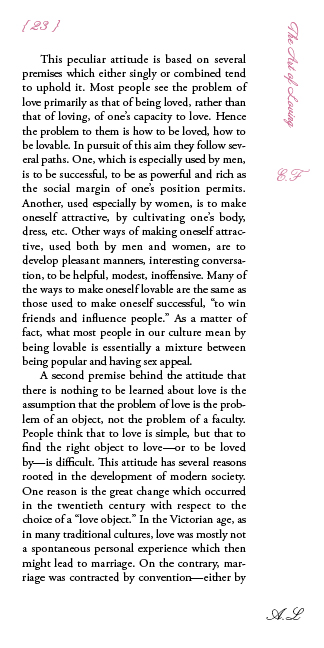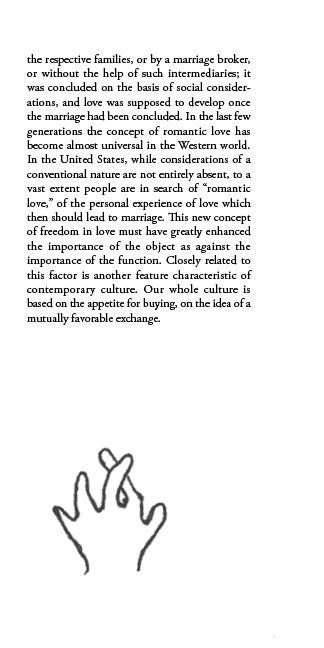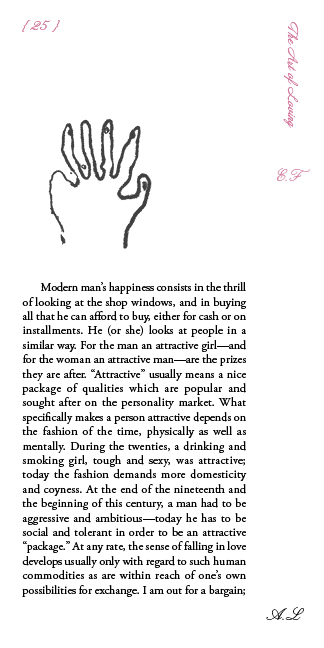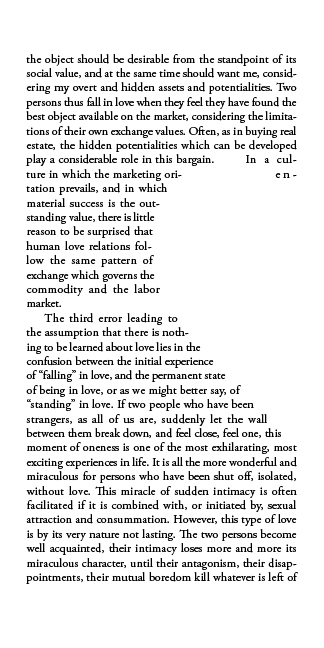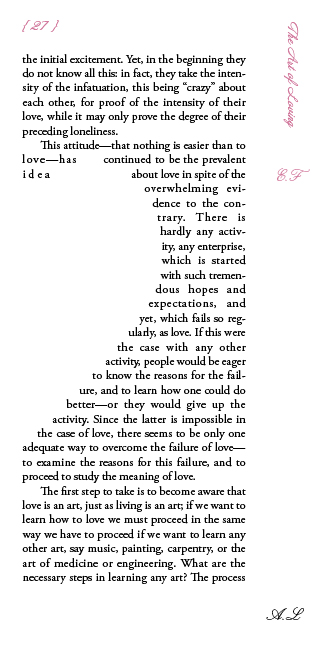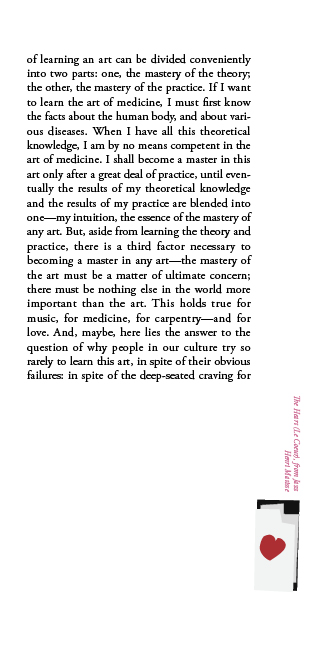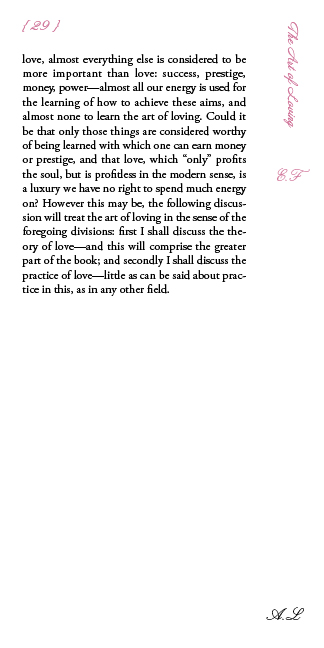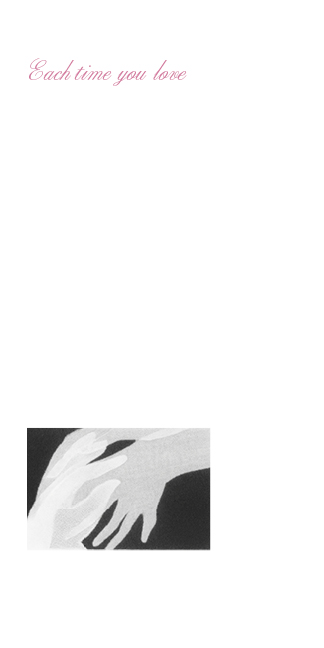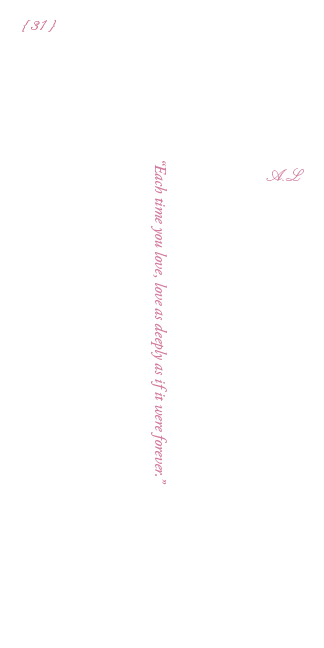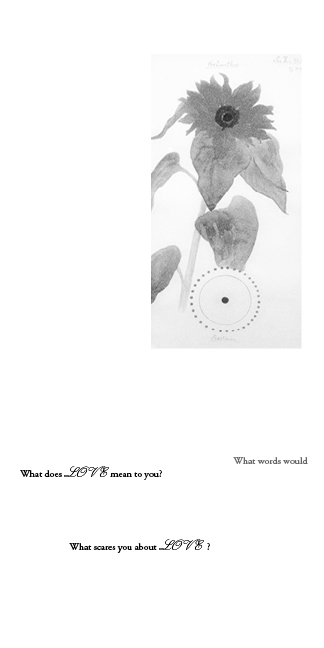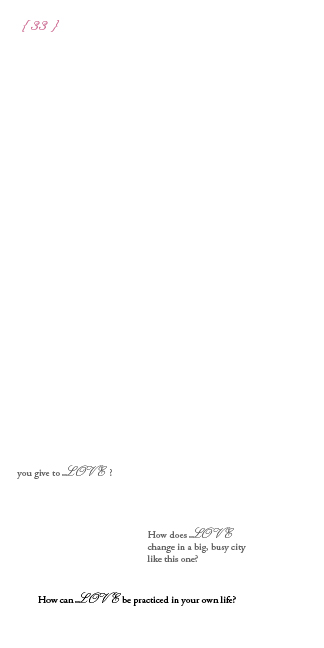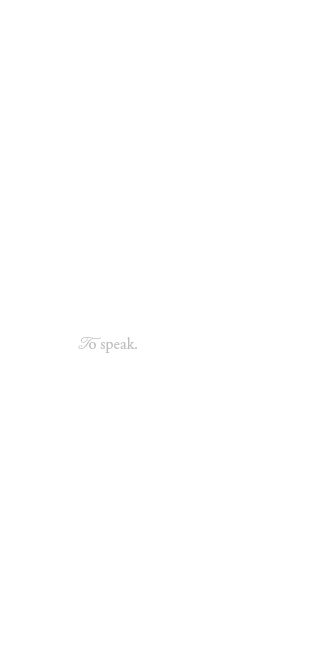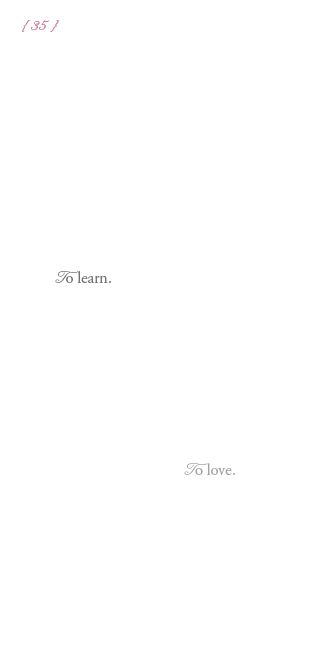Is Love an Art?
Erich Fromm viewed love as a discipline — a creative practice that must be learned, not merely felt.
In The Art of Loving (1956), he wrote that love demands care, responsibility, respect, and knowledge.
These qualities transform affection into maturity and connect emotion with understanding.
Fromm believed that love was not something we fall into,
but something we build through effort and awareness.
Like any art, it requires practice — patience, humility, and the courage to give without expecting return.
He argued that the modern world confuses comfort with connection.
In a society driven by consumption and loneliness,
love becomes an act of resistance — a way to reclaim our capacity for empathy and presence.
To love, for Fromm, is to choose life over habit, care over indifference.
It begins with self-knowledge and expands outward,
transforming not only our relationships but the very way we exist with others.
Love, in this sense, is a lifelong art — one that must be practiced every day.
→ Read


